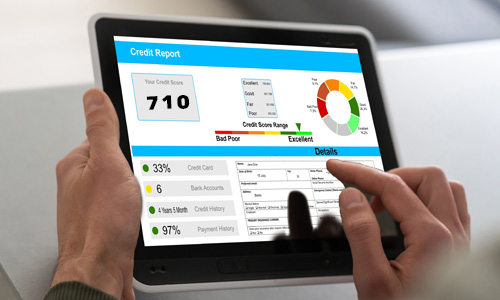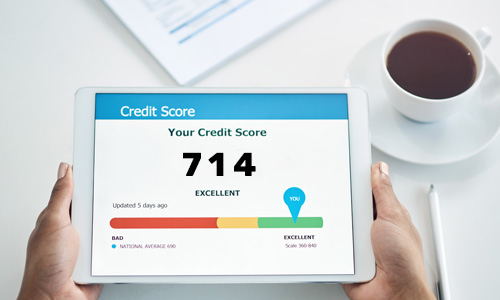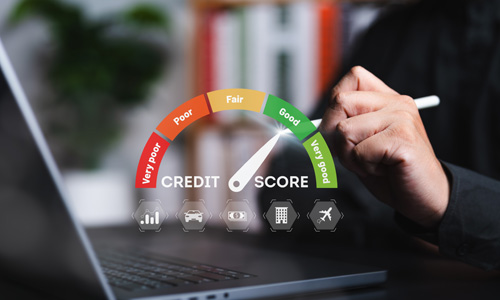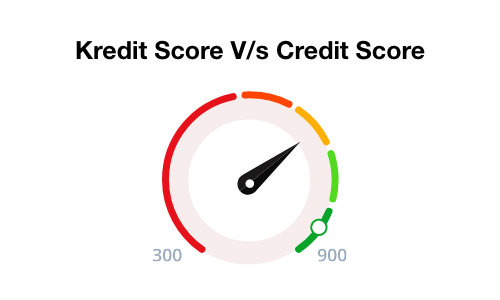Does Checking Credit Score Lowers It?
Whenever your credit is checked in the UAE, an inquiry is added to your credit report. Based upon the individual or the organization who is checking this credit report as well as the reason it is being checked, this inquiry will either become a hard inquiry or a soft inquiry. Although soft inquiries do not have any significant effect on your credit score, hard inquiries can affect it.
If you are checking your credit score in UAE on your own accord, then it will be considered a soft inquiry. Multiple soft inquiries will not affect your credit score but there are several types of hard inquiries that can.
Does checking credit score lower it? The answer to this question is no, it won’t lower your credit score because it is a soft inquiry. In this article, we will discuss why you should regularly check scores and things that you need to remember about hard and soft inquiries.
What is a soft inquiry?
There are several reasons why a soft credit check or soft inquiry may occur. Some of these reasons include:
- When you check your credit score
- Whenever a lender checks your credit score for pre-approving an offer
- Whenever your employer or your landlord checks your credit score with your consent
So, is checking your credit score bad? Not, not really because it comes under the soft inquiry category. Moreover, in this case, you are not officially applying for any credit. Therefore, whenever you are applying for a pre-approved credit card, student loan, mortgage, personal loan, etc. in UAE you won’t have to worry about your credit score.
However, if you are proceeding towards the next step, the creditor will make a hard inquiry in the UAE which will also be reflected in your credit report. This inquiry also can temporarily lessen your overall credit score.
What are the things that can decrease your credit score in the UAE?
Although we have already established the fact that checking your credit score in UAE will not decrease it. Nevertheless, there are multiple variables which can effectively decrease your overall credit score. Some of them are discussed below:
Your payment history
Your credit history is one of the most influential factors when it comes to determining your credit score. This is why paying your debts every month on time will help you receive a better credit score in the UAE. In case one of your debt repayment surpasses the 30 days’ limit then your will credit score will decrease. If you default your account, then your credit score will be severely affected.
The length of your credit history
If you have a longer credit history then it will have a positive impact on your credit score. There is another factor which is included in the calculation along with your credit history, known as the average age of your account.
Your total debt amount
Proper utilization of your credit score is very important because your utilization ratio will showcase to which extent you are using your credit card. For example, if your credit card limit is AED 10000 and your balance is AED 5000 then your utilization rate is 50 per cent. Having more than a 30 percent utilization score will affect your credit score negatively. People with the best credit scores tend to have a significantly lower utilization rate.
Credit mix
Different types of credits such as student loans, home loans, credit cards, personal loans, car loans, etc. can be better for your credit score. Although having one or two credits may not affect your credit score, it can restrict your credit potential.
New credit
Whenever you apply for a credit or loan, the creditors will conduct a hard inquiry on your credit score which in turn can significantly decrease your credit score. Moreover, if you have proceeded with multiple hard inquiries within a short period then it can also have a compounding effect on your credit score.

How often should you check your credit score?
You are allowed to check your credit score as many times as you want and it will not affect your credit score. Furthermore, it is a good idea to regularly check your credit score. At the very least, you should check your credit score before applying for a car loan, credit card, home loan, etc.
When you are checking your credit score you need to ascertain that nothing will come in the way of approving your credit or a new loan in UAE. Also, if you check your credit score a few months in advance, you need to point out the things that are creating a hurdle for you in receiving better scores in UAE.
It is also important to check your credit report at least once a year. Although your credit score is the numerical signifier of your overall credit health in the UAE, a credit report will enable you to receive more comprehensive information which can help you calculate your score.
While checking your credit report you can check for anything that you do not recognize. If you have found something unusual you can directly contact the lender to ensure that it is legitimate. Moreover, if you think the information you are looking at is not accurate or deceitful then you can report it to the credit reporting agency.
How to Check Your Credit Score in UAE?
Previously, it was not easy to get your hands on your credit score and credit report without any charges. In the recent few years, it has become much easier to access the same information for free.
Although credit lenders all over the world use different kinds of paradigms such as FICO® Score or VantageScore, the United Arab Emirates follows AECB credit score and AECB credit reports. If you are from UAE, you can receive your credit score from our website’s credit score page for free.
Another way to access your credit score is by visiting the al etihad credit bureau (AECB) website AECB.gov.ae where you will need to pay a small fee to receive your credit score and a detailed credit report. Your AECB credit score will assist the creditors to decide if they can or cannot provide you with credits and loans.
Tips to improve your credit score in UAE
If you are trying to build a better credit history then checking your credit score in UAE is necessary. If you are looking for options to increase your credit score, then here are some tips that will help you out:
- Completely pay off your overdue payments and make it a priority to pay every single debt timely every month.
- Although the utilization rate of your credit card is below 30 per cent you need to keep your credit card balance extremely low. In case you already have incurred a high balance, you need to repay them as soon as possible.
- Unless you need a new credit card, don’t apply for it.
- You can ask your family members to add you as an authorized user but make sure they have a positive account history which in turn can improve your credit score.
If you continue to practice the above-mentioned tips followed by some smart financial practices, you will be able to generate a better credit score.
| Credit Score for different types of Loan | |||
|---|---|---|---|
| Credit Score for Personal Loan | Credit Score for House Loan | Credit Score for Car Loan | Credit Score for Student Loan |

More From Credit Score
- Recent Articles
- Popular Articles











